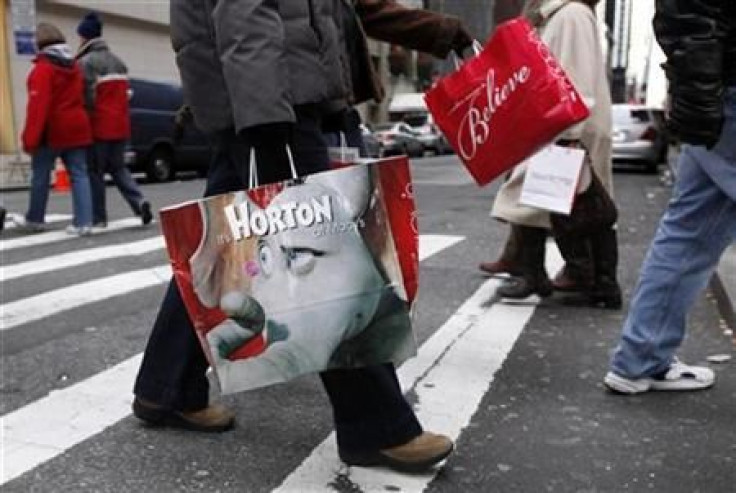US consumer confidence hits five-month high

Consumer confidence in the U.S. improved in November to reach the highest point in the last five months, suggesting the economy is still expanding, albeit it slowly.
The Conference Board said on Tuesday its consumer confidence index rose to 54.1 in November from 49.9 in October. The rise in the index was better than analyst consensus of a reading of 52.
“Consumer confidence is now at its highest level in five months, a welcome sign as we enter the holiday season. Consumers’ assessment of the current state of the economy and job market, while only slightly better than last month, suggests the economy is still expanding, albeit slowly, said Lynn Franco, Director of The Conference Board Consumer Research Center.
Expectations, the main driver of this month’s increase in confidence, are now at the highest level since May (Exp. Index, 84.6). Hopefully, the improvement in consumers’ mood will continue in the months ahead,” he added.
However, analysts played down the surge in the confidence indicator, suggesting that the further rebound in consumer confidence may not translate into a sustained acceleration in consumption growth when the jobless rate runs high and housing worries continue to persist.
Although it is encouraging that confidence is edging higher, consumers remain remarkably downbeat. If households were on the cusp of spending more significantly, confidence would now be well above the long-run average of 94, Capital Economics analyst Paul Dales wrote in a note.
Consumers’ assessment of current-day conditions was virtually unchanged from October, the survey revealed. Those claiming business conditions are “bad” increased to 43.6 percent from 42.3 percent, while those claiming business conditions are “good” edged down to 8.1 percent from 8.3 percent.
Consumers’ appraisal of the job market, however, was more positive than last month, according to the survey, which was based on a representative sample of 5,000 U.S. households.
Those stating jobs are “plentiful” rose to 4.0 percent from 3.5 percent, while those stating jobs are “hard to get” edged up to 46.5 percent from 46.3 percent.
Consumers were more optimistic about the short-term outlook than in October, the survey said. Those anticipating an improvement in business conditions over the next six months rose to 16.7 percent from 15.8 percent, while those anticipating business conditions will worsen declined to 12.1 percent from 14.4 percent.
Consumers were also more upbeat about future job prospects. Those expecting fewer jobs in the months ahead declined to 18.8 percent from 22.3 percent, while the percentage expecting more jobs rose to 15.5 percent from 14.5 percent. The proportion of consumers expecting an increase in their incomes increased to 10.6 percent from 9.7 percent, Conference Board said in a statement.
© Copyright IBTimes 2024. All rights reserved.











